Your Risk factors for psychosis images are ready. Risk factors for psychosis are a topic that is being searched for and liked by netizens today. You can Download the Risk factors for psychosis files here. Download all royalty-free photos and vectors.
If you’re searching for risk factors for psychosis images information related to the risk factors for psychosis topic, you have pay a visit to the ideal blog. Our website always provides you with hints for refferencing the maximum quality video and image content, please kindly search and locate more enlightening video content and images that fit your interests.
Risk Factors For Psychosis. Second exposure to risk factors was checked against a reference index which was. OBJECTIVES Risk for psychosis is currently defined primarily on the basis of attenuated positive symptoms APS with no inclusion of the functional deficits characteristic of schizophrenia. Dynamic or modifiable risk factors included hostile behaviour recent drug misuse non-adherence with psychological therapies p values. The results were corrected for publication biases.
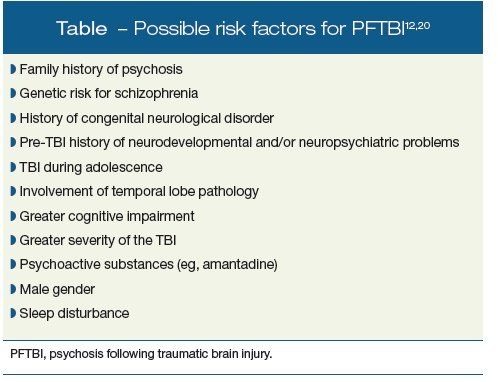 Traumatic Brain Injury And Psychosis Clinical Considerations From psychiatrictimes.com
Traumatic Brain Injury And Psychosis Clinical Considerations From psychiatrictimes.com
Paradigms Mechanisms and Prevention combines the related but disparate research endeavors into a single text that considers all risk factors for psychosis including biological psychological and environmental factors. University of Geneva One person in 2000 suffers from a microdeletion of chromosome. Significant protective factors were maternal ages 20-24 years OR 093 and 25-29 years OR 092 nulliparity OR 091 and birthweights 3500-3999 g OR 090 or more than 4000 g OR 086. Risk Factors for Psychosis. Childhood trauma and bereavement or separation in families have been found to be risk factors for schizophrenia and psychosis. Other substance use use of amphetamines cocaine ketamine LSD or inhaled substances such as toluene and certain types of glue can cause acute psychosis.
There are also triggers like drug use lack of sleep and other environmental factors.
First although risk factors can be either causal or correlational pathophysiology of psychosis is unknown and there are no causal risk factors as such. Consequently all the included risk factors are correlational. Poor functioning long duration of symptoms high levels of depression and reduced attention were all predictors of psychosis. And 3 social functioning is independent of clinical state and in particular of emerging psychosis. For instance belonging to a minority group in society ethnic religious etc increases the risk. A combination of family history of psychosis a recent significant decrease in functioning and recent experience of subthreshold psychotic symptoms was.
 Source: psychiatrictimes.com
Source: psychiatrictimes.com
Other substance use use of amphetamines cocaine ketamine LSD or inhaled substances such as toluene and certain types of glue can cause acute psychosis. Three findings from the current study support impaired social functioning to be an important risk factor for psychosis. Paradigms Mechanisms and Prevention combines the related but disparate research endeavors into a single text that considers all risk factors for psychosis including biological psychological and environmental factors. There are certain illnesses that cause psychosis however. 1 early social deficits are impaired in subjects at CHR who later developed psychosis compared with matched CHR subjects who did not convert to psychosis over follow-up.
 Source: schizophrenia-info-wechs.weebly.com
Source: schizophrenia-info-wechs.weebly.com
2 impaired social functioning appears to be a long-standing trait that is stable over time. 1 early social deficits are impaired in subjects at CHR who later developed psychosis compared with matched CHR subjects who did not convert to psychosis over follow-up. Childhood trauma and bereavement or separation in families have been found to be risk factors for schizophrenia and psychosis. This may yield a clearer picture of the risk for TLE patients for developing psychosis as well as some understanding of the processes underlying the develop-ment of psychotic symptoms. First although risk factors can be either causal or correlational pathophysiology of psychosis is unknown and there are no causal risk factors as such.
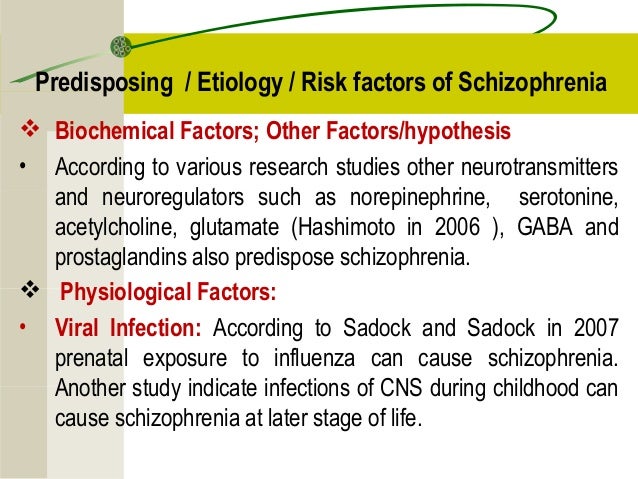 Source: slideshare.net
Source: slideshare.net
For instance belonging to a minority group in society ethnic religious etc increases the risk. Second exposure to risk factors was checked against a reference index which was. The results were corrected for publication biases. University of Geneva One person in 2000 suffers from a microdeletion of chromosome. A combination of family history of psychosis a recent significant decrease in functioning and recent experience of subthreshold psychotic symptoms was.
 Source: researchgate.net
Source: researchgate.net
Specific social experiences have been linked to specific psychological mechanisms and psychotic experiences in schizophrenia. Heavy use may also lead to long-term psychotic symptoms that may persist for years after the last exposure. Honer et al. This risk increases with heavier use use starting in adolescence and use of compounds with a high tetrahydrocannabinol content. This may yield a clearer picture of the risk for TLE patients for developing psychosis as well as some understanding of the processes underlying the develop-ment of psychotic symptoms.
 Source: semanticscholar.org
Source: semanticscholar.org
Impaired social and role functioning have been of interest for reflecting poor outcome but far less is known about the developmental impact of these deficits as vulnerability or risk factors. First although risk factors can be either causal or correlational pathophysiology of psychosis is unknown and there are no causal risk factors as such. Prescribing SSRIs during late childhood to those with genetic risk factors for psychosis can reduce the deterioration of intellectual abilities a new study revealsSSRIs appear to have a neuroprotective effect for certain brain areas associated with the onset of psychosis if provided early. The Hotel Study was set up to determine risk factors for psychosis in people living in precarious housing or homelessness in Vancouver. Honer et al.
 Source: researchgate.net
Source: researchgate.net
The results were corrected for publication biases. The Hotel Study was set up to determine risk factors for psychosis in people living in precarious housing or homelessness in Vancouver. Risk factors for psychosis IP PIP and IIP in individuals with TLE. This may yield a clearer picture of the risk for TLE patients for developing psychosis as well as some understanding of the processes underlying the develop-ment of psychotic symptoms. Significant protective factors were maternal ages 20-24 years OR 093 and 25-29 years OR 092 nulliparity OR 091 and birthweights 3500-3999 g OR 090 or more than 4000 g OR 086.
 Source: researchgate.net
Source: researchgate.net
Specific social experiences have been linked to specific psychological mechanisms and psychotic experiences in schizophrenia. Childhood trauma and bereavement or separation in families have been found to be risk factors for schizophrenia and psychosis. First although risk factors can be either causal or correlational pathophysiology of psychosis is unknown and there are no causal risk factors as such. Other substance use use of amphetamines cocaine ketamine LSD or inhaled substances such as toluene and certain types of glue can cause acute psychosis. This risk increases with heavier use use starting in adolescence and use of compounds with a high tetrahydrocannabinol content.
 Source: consultant360.com
Source: consultant360.com
2 impaired social functioning appears to be a long-standing trait that is stable over time. Consequently all the included risk factors are correlational. Paradigms Mechanisms and Prevention combines the related but disparate research endeavors into a single text that considers all risk factors for psychosis including biological psychological and environmental factors. University of Geneva One person in 2000 suffers from a microdeletion of chromosome. Studies also show that people in large cities develop psychosis more often than in rural areas.
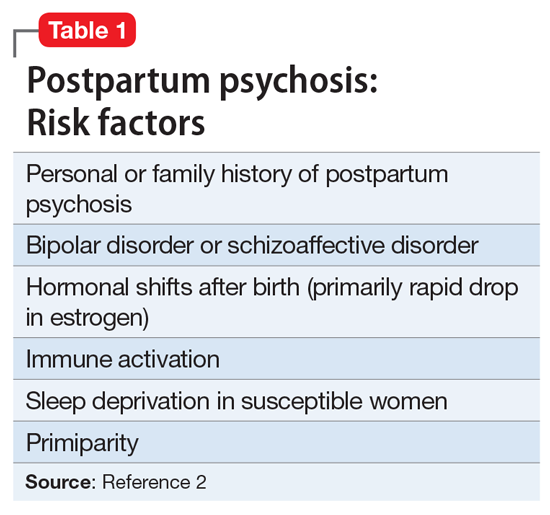
Consequently all the included risk factors are correlational. And 3 social functioning is independent of clinical state and in particular of emerging psychosis. Risk factors for psychosis IP PIP and IIP in individuals with TLE. Consequently all the included risk factors are correlational. Risk Factors for Psychosis.
 Source: verywellhealth.com
Source: verywellhealth.com
This risk increases with heavier use use starting in adolescence and use of compounds with a high tetrahydrocannabinol content. This may yield a clearer picture of the risk for TLE patients for developing psychosis as well as some understanding of the processes underlying the develop-ment of psychotic symptoms. Risk factors for psychosis IP PIP and IIP in individuals with TLE. Consequently all the included risk factors are correlational. For instance belonging to a minority group in society ethnic religious etc increases the risk.
 Source: researchgate.net
Source: researchgate.net
Consequently all the included risk factors are correlational. And 3 social functioning is independent of clinical state and in particular of emerging psychosis. 1 early social deficits are impaired in subjects at CHR who later developed psychosis compared with matched CHR subjects who did not convert to psychosis over follow-up. There are also triggers like drug use lack of sleep and other environmental factors. Childhood trauma and bereavement or separation in families have been found to be risk factors for schizophrenia and psychosis.
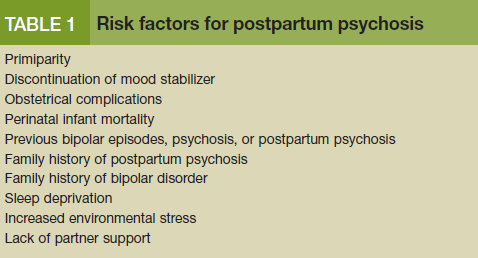 Source: psychiatrictimes.com
Source: psychiatrictimes.com
The results were corrected for publication biases. Risk factors for psychosis IP PIP and IIP in individuals with TLE. Consequently all the included risk factors are correlational. Paradigms Mechanisms and Prevention combines the related but disparate research endeavors into a single text that considers all risk factors for psychosis including biological psychological and environmental factors. Studies also show that people in large cities develop psychosis more often than in rural areas.
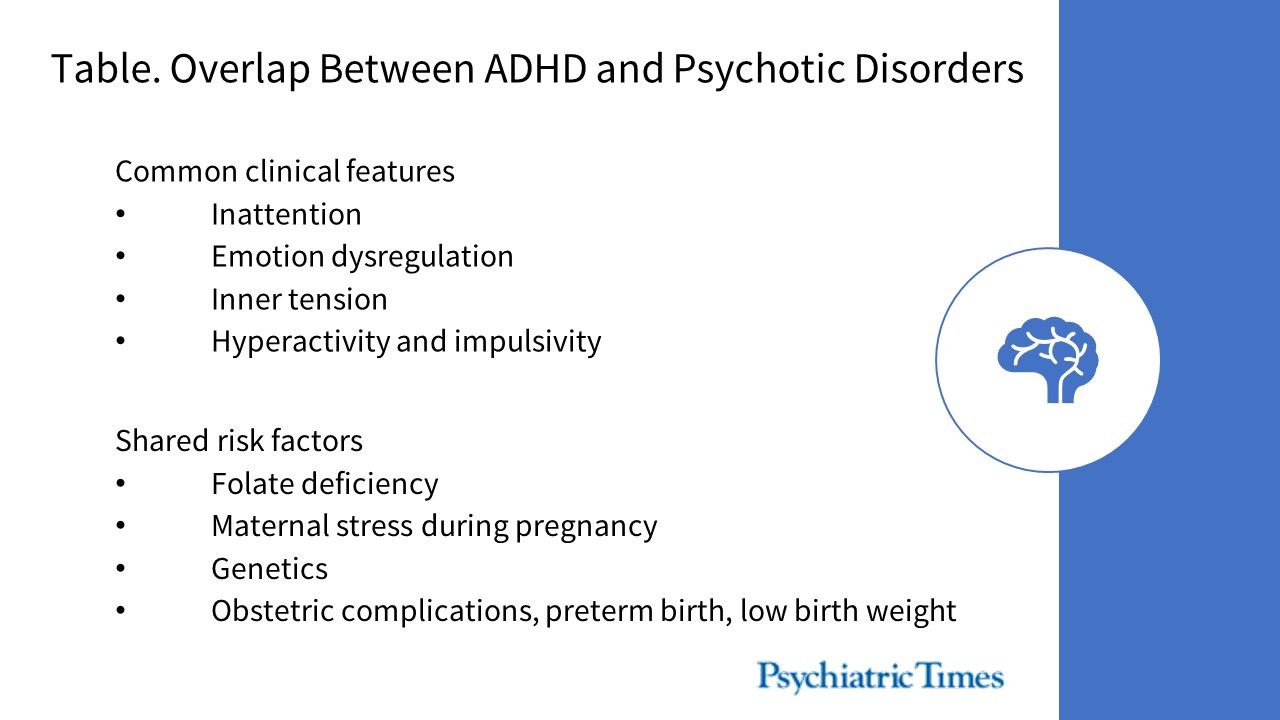 Source: psychiatrictimes.com
Source: psychiatrictimes.com
Heavy use may also lead to long-term psychotic symptoms that may persist for years after the last exposure. Heavy use may also lead to long-term psychotic symptoms that may persist for years after the last exposure. 2 impaired social functioning appears to be a long-standing trait that is stable over time. Many different environmental factors also play a part in the development of psychosis vulnerability. 1 early social deficits are impaired in subjects at CHR who later developed psychosis compared with matched CHR subjects who did not convert to psychosis over follow-up.
 Source: onlinelibrary.wiley.com
Source: onlinelibrary.wiley.com
In addition certain situations can lead to. 1 early social deficits are impaired in subjects at CHR who later developed psychosis compared with matched CHR subjects who did not convert to psychosis over follow-up. For instance belonging to a minority group in society ethnic religious etc increases the risk. First although risk factors can be either causal or correlational pathophysiology of psychosis is unknown and there are no causal risk factors as such. There are certain illnesses that cause psychosis however.
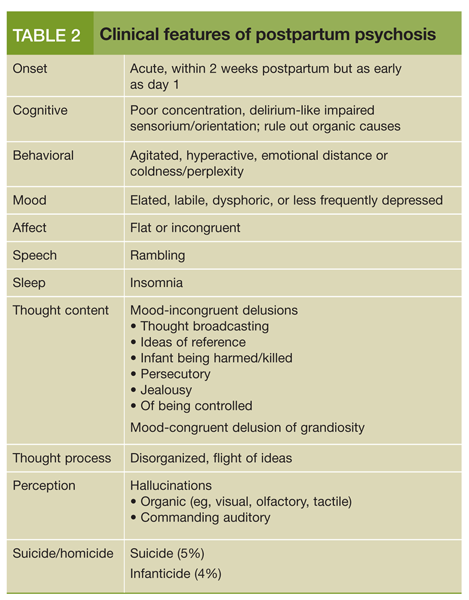 Source: psychiatrictimes.com
Source: psychiatrictimes.com
Significant protective factors were maternal ages 20-24 years OR 093 and 25-29 years OR 092 nulliparity OR 091 and birthweights 3500-3999 g OR 090 or more than 4000 g OR 086. For instance belonging to a minority group in society ethnic religious etc increases the risk. 2017 The researchers mapped the housing locations of patients presenting for 552062 visits to the catchment hospital emergency department 2005-2013. A combination of family history of psychosis a recent significant decrease in functioning and recent experience of subthreshold psychotic symptoms was. Sensitivity and meta-regression analyses confirmed the robustness of these findings for most factors.
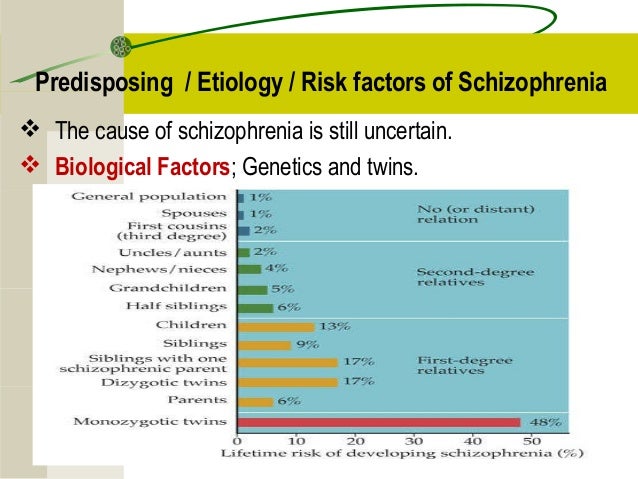 Source: slideshare.net
Source: slideshare.net
The results were corrected for publication biases. Sensitivity and meta-regression analyses confirmed the robustness of these findings for most factors. Other substance use use of amphetamines cocaine ketamine LSD or inhaled substances such as toluene and certain types of glue can cause acute psychosis. The Hotel Study was set up to determine risk factors for psychosis in people living in precarious housing or homelessness in Vancouver. Three findings from the current study support impaired social functioning to be an important risk factor for psychosis.
 Source: slideplayer.com
Source: slideplayer.com
OBJECTIVES Risk for psychosis is currently defined primarily on the basis of attenuated positive symptoms APS with no inclusion of the functional deficits characteristic of schizophrenia. Studies also show that people in large cities develop psychosis more often than in rural areas. Prescribing SSRIs during late childhood to those with genetic risk factors for psychosis can reduce the deterioration of intellectual abilities a new study revealsSSRIs appear to have a neuroprotective effect for certain brain areas associated with the onset of psychosis if provided early. The Hotel Study was set up to determine risk factors for psychosis in people living in precarious housing or homelessness in Vancouver. Poor functioning long duration of symptoms high levels of depression and reduced attention were all predictors of psychosis.
 Source: sciencedirect.com
Source: sciencedirect.com
Heavy use may also lead to long-term psychotic symptoms that may persist for years after the last exposure. Risk Factors for Psychosis. Heavy use may also lead to long-term psychotic symptoms that may persist for years after the last exposure. Specific social experiences have been linked to specific psychological mechanisms and psychotic experiences in schizophrenia. 2017 The researchers mapped the housing locations of patients presenting for 552062 visits to the catchment hospital emergency department 2005-2013.
This site is an open community for users to do sharing their favorite wallpapers on the internet, all images or pictures in this website are for personal wallpaper use only, it is stricly prohibited to use this wallpaper for commercial purposes, if you are the author and find this image is shared without your permission, please kindly raise a DMCA report to Us.
If you find this site good, please support us by sharing this posts to your own social media accounts like Facebook, Instagram and so on or you can also save this blog page with the title risk factors for psychosis by using Ctrl + D for devices a laptop with a Windows operating system or Command + D for laptops with an Apple operating system. If you use a smartphone, you can also use the drawer menu of the browser you are using. Whether it’s a Windows, Mac, iOS or Android operating system, you will still be able to bookmark this website.





